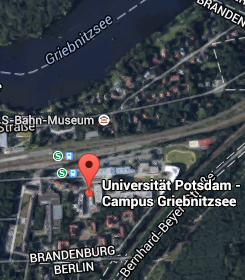Back for a fourth year in Europe, JRubyConf EU.
A one-day, single track conference, dedicated to JRuby.
Stay connected to our information stream!
follow @jrubyconfeu
Speakers
-
 Charles Nutter
Charles Nutter
-
 Tom Enebo
Tom Enebo
-
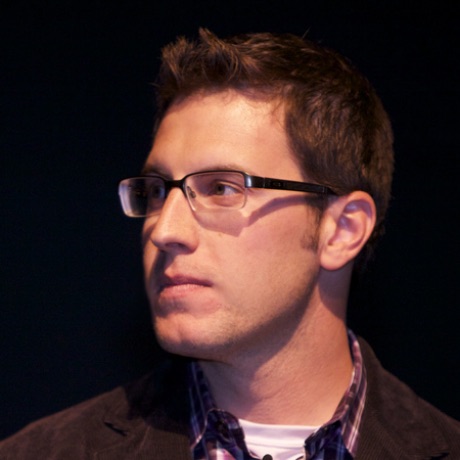 Joe Kutner
Joe Kutner
-
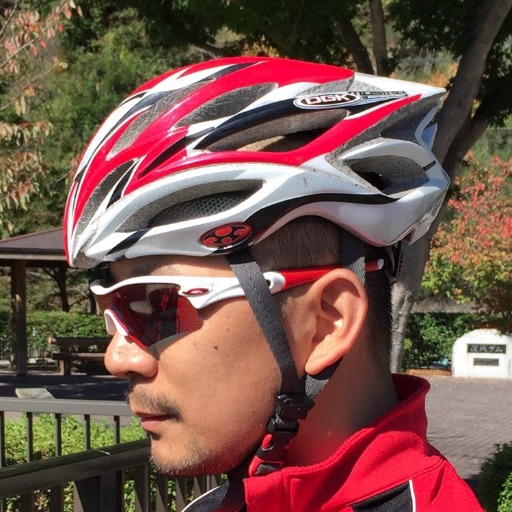 Satoshi Tagomoti
Satoshi Tagomoti
-
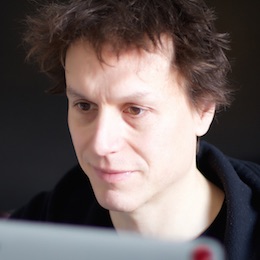 Colin Suprenant
Colin Suprenant
-
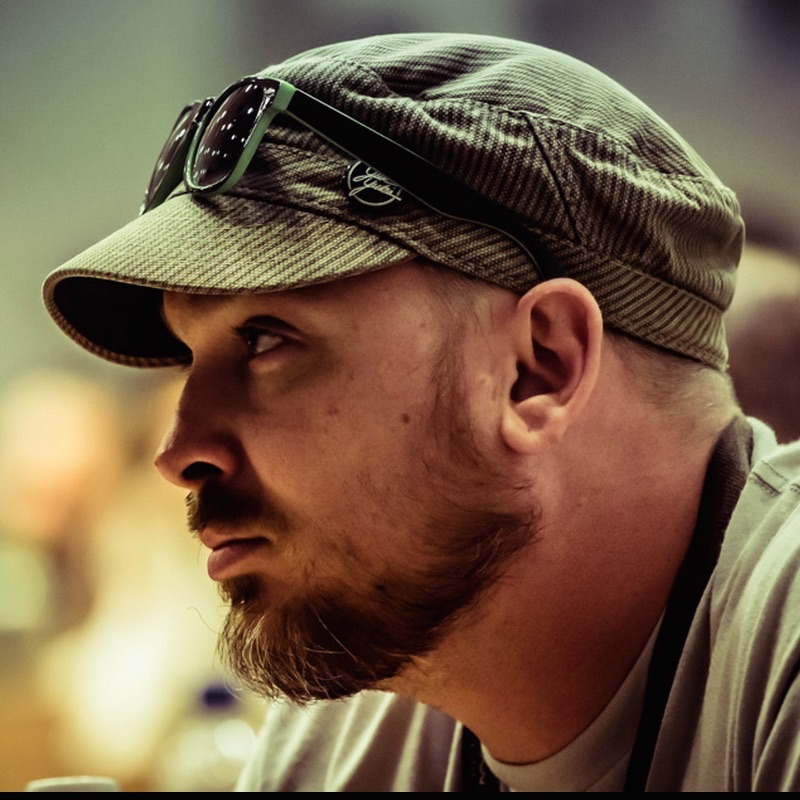 PJ
PJ
-
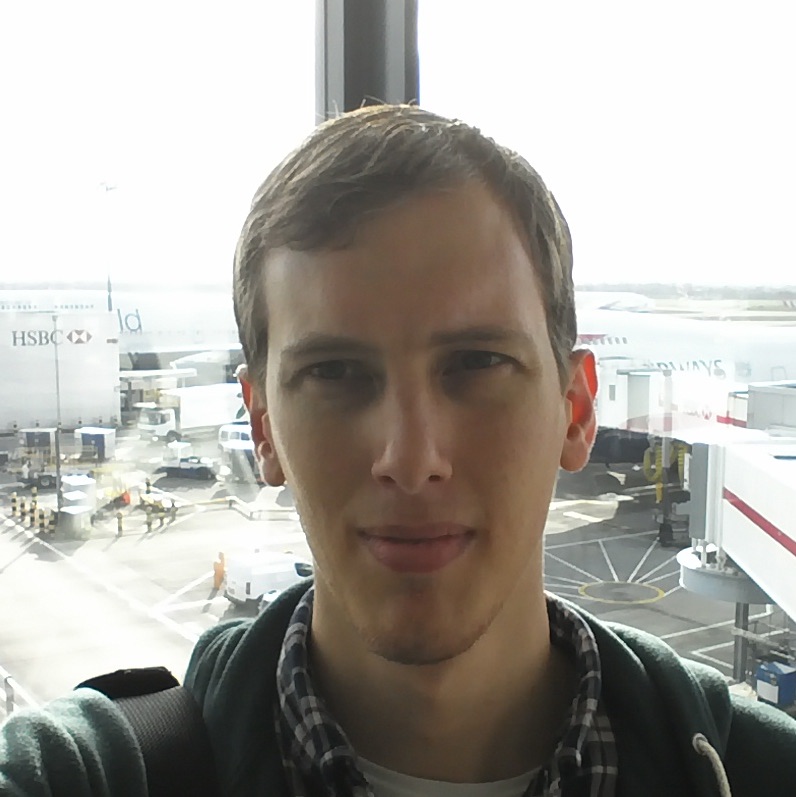 R. Tyler Croy
R. Tyler Croy
-
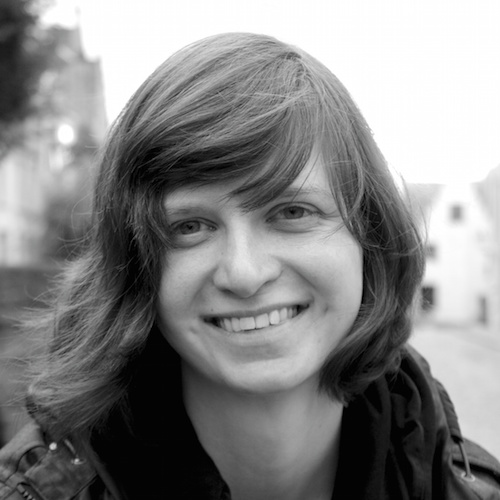 Anika Lindtner
Anika Lindtner
-
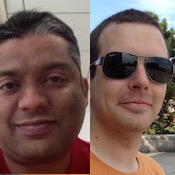 Rocky Jaiswal & Michal Olah
Rocky Jaiswal & Michal Olah
-
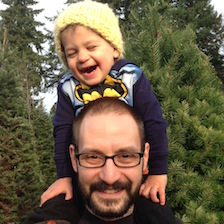 Jason R. Clark
Jason R. Clark
-
 Thilo-Alexander Ginkel
Thilo-Alexander Ginkel
-
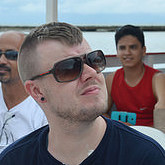 Alex Coles
Alex Coles
-
×

Charles Nutter
Biography
Charles works on JVM languages at Red Hat, focusing on Ruby but expanding to other languages soon. He has worked on JRuby for the past eight years and has been a JVM enthusiast since Java 1.0. Charles hopes to make JRuby the best Ruby implementation for high performance, big data, and heavy loads, and to use lessons learned from JRuby to help the JVM and other languages that run on it meet their potential.
“JRuby 9000 is here”
JRuby 9000 is here! After years of work, JRuby now supports Ruby 2.2 and ships with a redesigned optimizing runtime. We'll talk about where we stand today on compatibility and performance and then cover future work that will keep JRuby moving forward.
-
×

Tom Enebo
Biography
Thomas Enebo is co-lead of the JRuby project and an employee of Red Hat. He has been a practitioner of Java since the heady days of the HotJava browser, and he has been happily using Ruby since 2001. Thomas has spoken at numerous Java and Ruby conferences, co-authored "Using JRuby", won the Ruby Hero award, and was awarded the "Rock Star" award at JavaOne. When Thomas is not working he enjoys biking, anime, and drinking a decent IPA.
“JRuby 9000 is here”
JRuby 9000 is here! After years of work, JRuby now supports Ruby 2.2 and ships with a redesigned optimizing runtime. We'll talk about where we stand today on compatibility and performance and then cover future work that will keep JRuby moving forward.
-
×

Joe Kutner
Biography
Joe is the JVM Languages Owner at Heroku, a cloud application platform supporting Scala, Java, Clojure, Groovy and JRuby. He’s worked with the JVM for over a decade as both an application architect and a consultant specializing in deployment. Joe maintains Warbler, a tool for packaging JRuby applications into WAR files, and JRuby was the topic of his first book from the Pragmatic Bookshelf.
“The Twelve Factor App: Best Practices for JRuby Deployment”
Twelve Factor apps are built for agility and rapid deployment. They enable continuous delivery and reduce the time and cost for new developers to join a project. At the same time, they are architected to exploit the principles of modern cloud platforms while permitting maximum portability between them. Finally, they can scale up without significant changes to tooling, architecture or development practices.
In this talk, you’ll learn the principles and best practices espoused by the Twelve Factor app. We’ll discuss how to structure your code, manage dependencies, store configuration, run admin tasks, capture log files, and more. You’ll learn how modern JRuby deployments can benefit from adopting these principles, and why they fit nicely within the cloud.
-
×

Satoshi Tagomoti
“JRuby with Java Code in Data Processing World”
There are many great way to use JRuby, but one of biggest some is for glue between Java world and Scripting (, Lightweight, user-friendly or...) World, I think.
We, Treasure Data: data processing service company, have some good example for this case, Norikra and Embulk. These two OSS product have completely different purpose and architecture, but both have very similar mind for using JRuby.I'll talk about what these software are, why/how these software uses JRuby. and also about the community around these software (especially in Japan).
-
×

Colin Suprenant
Biography
Colin Surprenant is Software Engineer at Elastic, core developer in the logstash project. https://github.com/colinsurprenant http://colinsurprenant.com/
“JRuby file IO using mmap”
This is my quest for achieving fast disk IO for a JRuby persistent queue implementation. This talk will present the possible strategies for doing disk IO, the pitfals of using Java objects in JRuby for data intensive code, and how to write a Java extension to avoid the high cost of type conversion when crossing the world between JRuby and Java. This talk will be a deep dive into JRuby and Java code with benchmarks for all strategies.
-
×

PJ
Biography
Developer, writer, speaker, musician, and Team Lead of an elite band known as the Engine Yard Community Team, PJ is known to travel the world speaking about programming and the way people think and interact. He is also known for wearing hats.
“Mirah: Where Java Meets Ruby”
Mirah, originally called Duby, was created by Charles Nutter. Started in 2009, Charles wanted “a 'Ruby-like' language, probably a subset of Ruby syntax, that [could] compile to solid, fast, idiomatic JVM bytecode." The word itself means ruby (the actual gemstone) in Javanese, the national language of of Java. This talk will discuss how to get started using Mirah, some of the differences between Java, the JVM, and Ruby, and the confluence bringing the best parts together.
-
×

R. Tyler Croy
Biography
R. Tyler Croy is a developer based in California, with 8 years of dynamica language experience under his belt. Nowadays he's mixing and matching between JVM-based langauges such as Groovy, Java, and Ruby to solve large-scale infrastructure challenges for Lookout, Inc. At Lookout, Tyler runs the team which supports tools and infrastructure for the rest of the engineering organization. One focus of his team is contributing to JRuby and its tooling, to make developers more effective and successful. Tyler is also the driving force behind many of Lookout's open-source contributions and their hackers blog, Outside of work, Tyler has been a long-time open-source contributor; you can find his contributions, under rtyler on GitHub.
“JRuby Gradle - Bringing Java Power Tools to Ruby”
One of the most useful aspects of JRuby is the ease at which one can integrate tools from the Java ecosystem. For developers building hybrid applications though, using Ruby tools like Bundler and Rake can result in unpleasant hacks. If you stick to classic Java tools like Maven, it can feel like writing Ruby with a straight-jacket on. This lack of mature tooling to support Java/Ruby applications leaves developers in an uncanny valley between the two universes..
With the recent rise of Gradle, which was designed to support a polyglot ecosystem through a rich plugin architecture, there is light at the end of the tunnel for JRuby developers!
This talk will introduce the jruby-gradle project, an effort to combine the very best in Java tooling with the Ruby world, providing top-notch integration for JRuby devs. During the talk we will cover the motivations of the jruby-gradle project and describe how it helps bridge the gap between Java and Ruby. By combining the flexibility of JRuby with the power of Gradle, we can breathe new life into JRuby, opening it up to an even broader audience than before.
-
×

Anika Lindtner
Biography
Anika was born and raised in Berlin. Since July 2013 she works at Travis CI - as the first woman and the employee Nr. 6. She runs the Travis Foundation, aiming to make open-source even better and with it manages Rails Girls Summer of Code - a three months scholarship program in Open Source.
Anika once was a poetry slam artist, a teacher and worked at an ad agency. She can also draw monsters, knit hats with pom poms and likes urban gardening.“How you can fix your community in one day”
This talk will teach you a magic trick. It will show you to stop our communities from breaking apart. Studies have shown that half the women who enter the technology field will leave over time. HALF! What’s happening? How did we get here? What can we do? In my talk I will show you how we can fix the diversity problem, and why we should care. I'll tell you a true story about about role models, Rails Girls Summer of Code, broken stereotypes - and cat gifs. How to build community-driven initiatives that change our world. And the best part is: Everyone can do it. In one day.
-
×

Rocky Jaiswal & Michal Olah
Biography
Rocky is a software developer with over a decade of experience in software design and programming. He enjoys coding in Ruby, JavaScript, Scala and Go. He loves working on open-source projects and tinkers with technology in his free time. He has been a speaker at AgileNCR 2010, Agile Tours 2010, IndicThreads Conference on Cloud Computing 2011, Ruby Conf India 2012&2013 and IndicThreads Software Development Conference 2012&2013. He is currently working as a programmer with crealytics GmbH, Berlin. His blogs / videos can be found on http://rockyj.in
Michal is a software developer with more than 7 years of IT experience, providing software design, development and implementation of internet/intranet applications for data management and data analysis projects. His scope of expertise includes web application development built upon existing-standards (Ruby on Rails, J2EE, JSP, JavaScript, MS Visual C#, Sass, Haml). He also has wide experience with project development, research and collaborations on various design and planning levels.“Scaling Ruby applications with Mesos and Docker”
Scaling Ruby applications is hard. While PaaS solutions like Heroku provide such benefits the costs may be quite high. Most of us our looking for the flexibility of our own bare-metal servers with the scalability of a PaaS.
Docker meanwhile has also provided a great way to isolate or containerize our application. While Docker is great for distribution and deployment, we wonder can we also use it to scale our applications, i.e bringing containers up/down on demand.
Apache Mesos is one such technology we can leverage to add scale to our infrastructure. Instead of dealing with multiple machines we deal with our cluster as a single unit. We allocate resources from this single unit to Docker containers, making it very easy to add/remove resources.
In this talk, we will see a live demo of a Mesos cluster and what it takes to set it up. We will also Dockerize a simple JRuby service and add / scale it to our Mesos setup. We will also learn the advantages and pitfalls of this setup. -
×

Jason R. Clark
Biography
Jason fell in love with programming as a young boy watching his dad work in Clipper and dBase III (no, really). The obsession sparked there continues to this day. He works for New Relic on the Ruby Agent, and in his spare time contribute to the Shoes project. When not at work, he enjoys cycling, homebrewing, and hanging out with his family.
“Get Your Shoes Back on”
Years ago the enigmatic Rubyist _why created Shoes, a tiny GUI toolkit for writing fun, simple applications in Ruby. Shoes served as the foundation for Hackety Hack, a programming environment specially designed to be accessible to kids.
In the wake of _why's departure, many people assumed Shoes was finished as well. Such is not the case!
Shoes has continued to evolve and grow, and the latest revision (Shoes4) builds off the cross-platform strengths of JRuby and SWT. If you've ever wanted to write a desktop app as easily as you write a web page, Shoes is for you. If you've ever wanted to get involved in a welcoming, accessible open-source project, we'll show you how to hack on Shoes.
Get your Shoes on, and let's build something awesome! -
×

Thilo-Alexander Ginkel
Biography
Thilo-Alexander has had a passion for developing software for more than half of his life. He is working as a freelance software developer, DevOps engineer and architect where his current project lead him to the fast-moving world of financial transactions.
“Best of Both Worlds: Building a Mirror-Trading Platform on Top of the {Java|Ruby} Ecosystem”
JRuby may not immediately come to mind when thinking about implementing a platform for foreign-exchange and stock transactions.
This talk may prove you wrong. It will give some insights and hands-on experience into how using JRuby made our work a lot easier when building and operating a mirror-trading platform on top of an asynchronous and concurrent message-passing architecture. Indeed, by using JRuby one can benefit from Ruby's sleek syntax and elegant programming model while also tapping into the rich set of trading platform integrations available in the Java world. Furthermore, the talk will elucidate the unique robustness and monitoring advantages that we gained in our project from running our stack on top of the JVM using the Tanuki service wrapper for uninterrupted operation and monitoring various components through JMX. -
×

Alex Coles
Biography
Alex unabashedly wears the hat of ‘generalist’. He is active in the Ruby community, having founded the annual eurucamp camp/conference and JRubyConf EU. He has also contributed extensively to many open-source projects including OpenProject, RefineryCMS and DataMapper.
“Quiet and versatile Rubyist: using the tools you’ve got”
There are times when we can work with the technologies we love. And there are times when we have to work with WebSphere and Oracle. The virtues of being opinionated have been extolled since the inception of the Rails framework back in 2005. Sometimes though, it’s necessary to be pragmatic. This talk will feature not only Ruby but also the technologies we hate to work with, the technologies that seemingly only exist to keep consultants and IT departments in work.
Like to stay in touch? Subscribe to our newsletter or following us on twitter.
The Venue

Hallo Postdam! This year's conference will be held at the beautiful Griebnitzsee campus of the University Of Postdam.
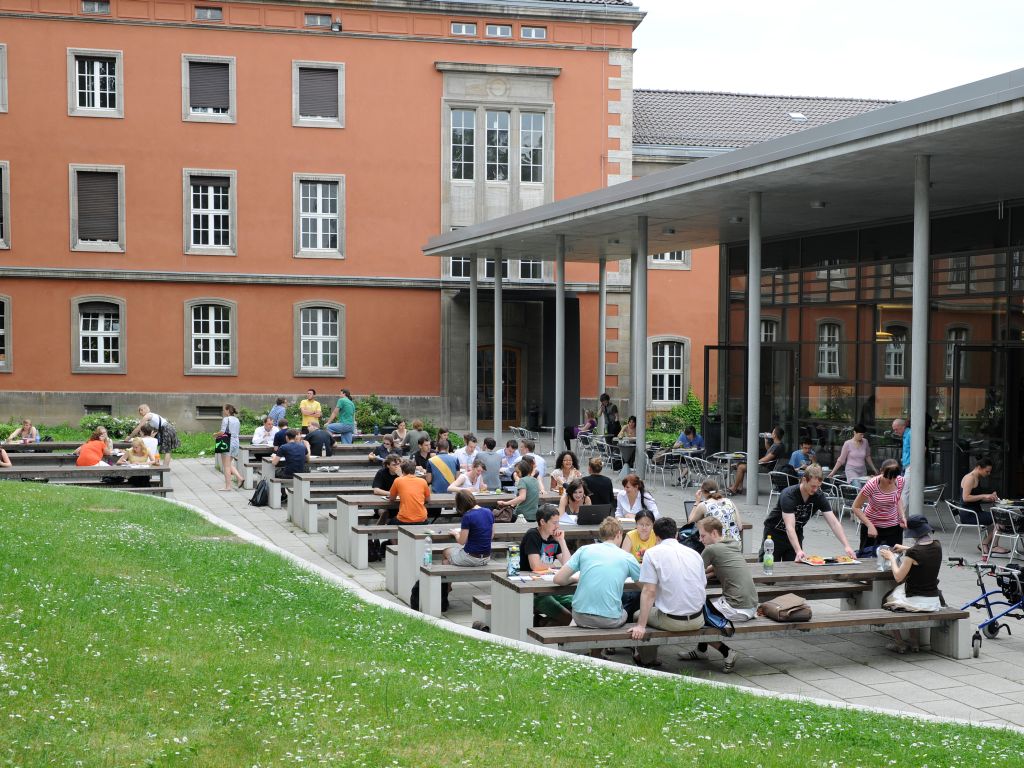
-
08:45Registration
-
09:30Intro
-
09:45Keynote Charles Nutter and Tom Enebo
-
10:30JRuby Gradle - Bringing Java Power Tools to Ruby R. Tyler Croy
-
11:15JRuby with Java Code in Data Processing World Satoshi Tagomoti
-
11:45GET YOUR SHOES BACK ON Jason R. Clark
-
12:15Mirah: Where Java Meets Ruby PJ
-
12:30Lunch break
-
14:00Quiet and versatile Rubyist: using the tools you’ve got Alex Coles
-
14:30The Twelve Factor App: Best Practices for JRuby Deployment Joe Kutner
-
15:15Scaling Ruby applications with Mesos and Docker Rocky Jaiswal & Michal Olah
-
15:45JRuby file IO using mmap Colin Suprenant
-
16:30Best of Both Worlds: Building a Mirror-Trading Platform on Top of the {Java|Ruby} Ecosystem Thilo-Alexander Ginkel
-
17:00How you can fix your community in one day Anika Lindtner
-
17:45Lightning Talks
-
18:15Closing
-
19:30eurucamp Introduction & Keynote
-
20:30JRubyConf.EU + eurucamp party
Sponsors!
Platinum Sponsor
Gold Sponsors
Silver Sponsors
Nickel Sponsors
Supporters
- David Kimr (Unicorn Universe)
Does your company use JRuby? You should consider sponsoring the only JRuby Conference in 2015!
Get in touch with us.



